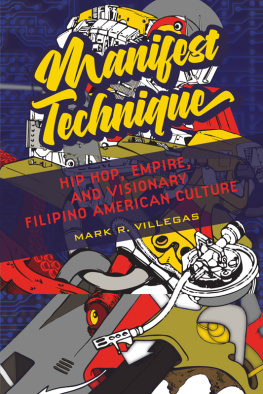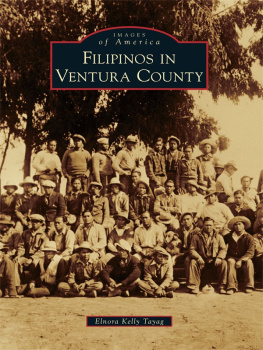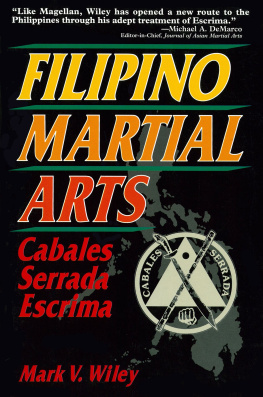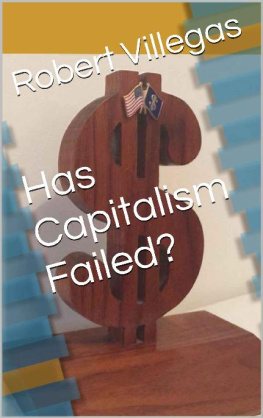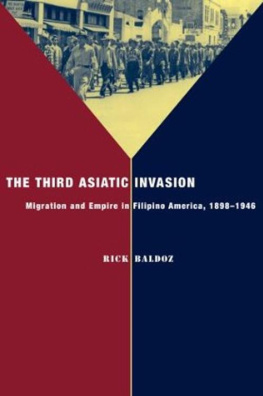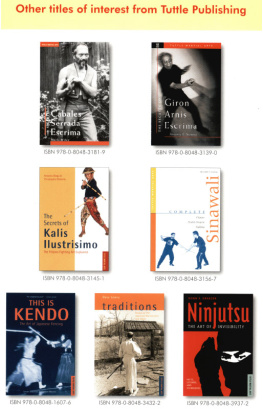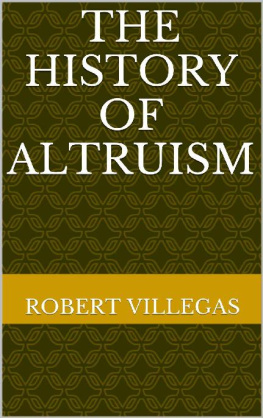Publication of this book was supported in
part by funding from the Franklin & Marshall
College Office of College Grants Resource Fund
administered by the Office of the Provost.
An earlier, condensed version of was previously published in Amerasia Journal.
2021 by the Board of Trustees
of the University of Illinois
All rights reserved
Library of Congress Cataloging-in-Publication Data
Names: Villegas, Mark R., author.
Title: Manifest technique: hip hop, empire, and visionary Filipino American culture / Mark R. Villegas.
Description: Urbana: University of Illinois Press, [2021] | Series: The Asian American experience | Includes bibliographical references and index.
Identifiers: LCCN 2021005206 (print) | LCCN 2021005207 (ebook) | ISBN 9780252043789 (cloth) | ISBN 9780252085772 (paperback) | ISBN 9780252052682 (ebook)
Subjects: LCSH : Filipino AmericansSocial life and customs. | Filipino AmericansEthnic identity. | Hip-hopSocial aspectsUnited States. | Filipino AmericansMusicSocial aspects.
Classification: LCC E184.F4 V56 2021 (print) | LCC E184. F 4 (ebook) | DDC 973/.049921dc23
LC record available at https://lccn.loc.gov/2021005206
LC ebook record available at https://lccn.loc.gov/2021005207
For the loud, yet unheard
PREFACE
On Constant Replay
In 2010, the Filipino American hip hop group the Native Guns released the song Handcuffs to honor the memory of twenty-two-year-old Oscar Grant who was killed by a transit police officer in Oakland, California, on New Years Day. Grant was handcuffed, pinned down, punched, and shot in the back at point-blank range. The execution-style killing was followed by local protests, spurring renewed national attention to police violence against Black people. After chanting the names of African Americans recently taken at the hands of the police, Kiwi raps:
We sick of just yellin No justice, no peace
Dj vu, 1992, pause and repeat
All the tension been buildin, its gotten to a peak
Its a Molotov party, and we brought our own drinks.
The Native Guns musical catalog is part of a broader cultural response to police violence, adding to hip hops reputation of documenting and communicating the practice of racial profiling. At the time, Handcuffs was their latest contribution to seemingly permanent problems in U.S. policing. As if our world is a piece of film caught in a loop, like the replayed, fuzzy camcorder footage of Rodney King being beaten, Kiwi intimates that little social progress has been made over decades of police abuse, protest, riots, calls for peace, promises and repeat. The images of rage and revolt in Handcuffs could apply to any number of episodes of police violence against African Americans before Oscar Grant and after.
In 2012, the Seattle Times invited Filipino American emcee Geologic (who at the time performed as Prometheus Brown) to write a guest column on a May Day pricks at the conscience of Seattle, which prides itself on its supposed cultural liberalism but maintains residential segregation. In the hook, Geo reveals a north/south divide in Seattle, with the latter being more Black, brown, and working class and thus invisible, and the former being more white, wealthy, and thus deemed by some to be worthier of protection:
Shots fired in the South End, nobody cares
Shots fired in the North End, everybody scared
Nothing they can do for us that we cant do ourselves
Point the finger at the mirror instead of somebody else.
It seems that we must be constantly reminded of the tension between American societys inherent violence and its more acceptable mythologies of freedom and egalitarianism. For the past few decades, hip hop music has articulated this tension with precision and harrowing clarity. Handcuffs and May Day serve as cultural markers inserted in the long game of memory work. The constant replay exhibited in hip hop music shows us that memory is fragile. It is not made of stone or steel. Memory takes work, stewardship, and social movement.
The politics of the Native Guns and Geo are not isolated or exceptional; they emerge from interconnected, collaborative, and intergenerational Filipino American hip hop cultural communities. Manifest Technique examines the ways in which Filipino Americans inhabit and perform multiple, messy, and often contradictory expressions in hip hop, which I claim represent a vernacular culture rooted in colonial dispossession. By defying the racial tropes espoused in Spanish and American white supremacy, Filipino Americans have been connecting with a larger universe of racial dignity in spaces of hip hop.
We as Filipino Americans have been engaged in protracted wars over memory and meaning. Che, a Black Filipina American vocalist of the eclectic and visionary hip hop group LOVE Culture in Jacksonville, Florida, was active as an artist-organizer in the successful movement to remove Confederate monuments, symbols that stood for white dominance and permanence. This Black-led movement signaled an urgent call for freedom from white supremacy; it was a war over memory and meaning: white supremacy is not invincible. Che and her comrades toppled the monuments. Yet, statues still dot public squares across the United States inscribed with tall tales of the nation gifting freedom to the Philippines, such as the Admiral George Dewey Monument in the heart of San Franciscos financial district.
But blocks of granite do not write, dance, or sing. People do. Manifest Technique exhibits the creative knowledge Filipino Americans exude. Our culture demonstrates we are a mighty and resilient peopleand we are so because African Americans have might and resilience. The pages in this book testify to the fact that Filipino American decolonization is indebted to Black freedom strugglein fact, Philippine independence has been intimately linked to Black resistance since African American soldiers banded with Filipinos during the Philippine-American War.
No justice, no peace is not just a protest chant; it is a motto reflecting the painful inevitability of constant replay. Our artists are restless, always at the helm of leading us toward new possibilities. At its best, hip hop offers a space to envision a future that is race conscious, pro-Black, and absolutely beautiful.

